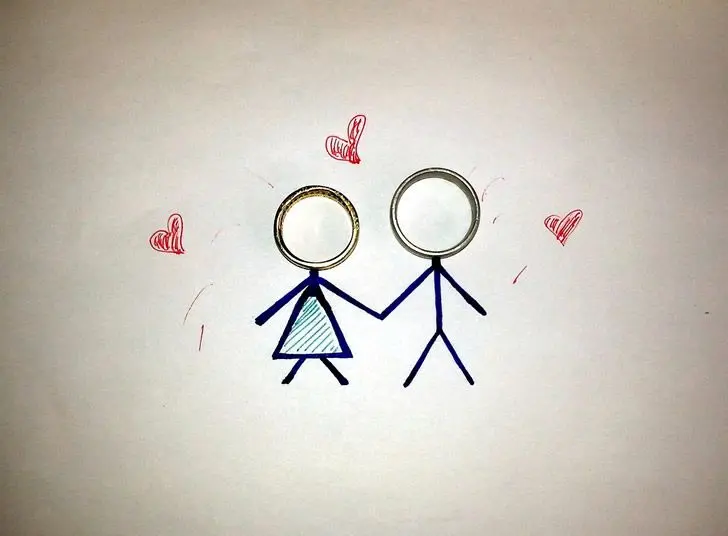Marriage is an event that never goes out of style. But, while it’s true that the fairytale party, dress, cake, and setting please many people, the continuation of the story tends to be somewhat more realistic than the famous “And they were happily ever after.” This is precisely where things get complicated.
SEE ALSO: 20 Engagement Rings That Any Nerd Would Say “I Do” To

How to have a happy marriage?
To help a little in that epic battle of marriage, American gerontologist Karl Pillemer had completed a project that is considered the largest in-depth study of married people. The original “Cornell Marriage Advice Project” involved a group of researchers who analyzed the lives of more than 700 married people, resulting in a total of more than 40,000 years of marital union.
To capture the essence of the voice of the experience, Pillemer also conducted randomized research in the United States with approximately 400 couples aged 65 and older, questioning them about things about how to find a compatible partner and other related love advice. In subsequent face-to-face interviews with more than 300 individuals who had been married for many years — those with 30, 40, 50 or more years of marriage — Pillemer recorded more recommendations for overcoming common relationship problems. His team also interviewed divorced individuals, asking them ways other people could avoid marital failures.
Averages.
The average age of the interviewees was 77 years and 58% of women and 42% of men were included. The average length of marriage was 44 years, the oldest couple were 98 and 101 years old respectively and had been together for 76 years. The responses were compiled for the most common recommendations, resulting in a list of the most frequent lessons in a successful, long-term relationship.
1 – Learn to communicate.

Those who lived and enjoyed a good marriage over the years pointed out that dialogue as a couple is a key point. Talk, talk, talk. Talk about everything. And, of course: learn to listen. Successful couples believe that open communication has the power to solve marital problems, no matter how complicated they may seem. And that, in the same way, couples who don’t communicate tend not to have a long-lasting relationship.
2 – Get to know your partner very well before you get married.

Although many people interviewed in the study married very young, they recommend just the opposite. The advice of long-lived couples is for younger couples to wait to get married until they have known all the particularities of their partner. The good side and the bad side, the quirks, the reactions… as much as possible.
3 – Trust commitment.

A series of experiences shared during the research also resulted in a very pure truth: never marry with the expectation that your partner will change. The idea of marriage and happily ever after. Getting married thinking that if it doesn’t work out you have other options, without a doubt, is not a good decision.
4 – Consider marriage as an unbreakable agreement, a lifelong commitment.

Rather than seeing marriage as a voluntary union that lasts only as long as the passion remains, he approaches that commitment with the seriousness it demands. Even if things deteriorate a bit over time, respect the vows you promised the other person and, most importantly, remember why you made them.
5 – Learn to work as a team.

Apply what you’ve learned from your lifelong experiences of teamwork – in sports, at work, and in living together in general – in your marriage. More specifically, this view involves solving problems collectively, as a couple, dividing responsibilities, rather than throwing everything on the partner’s back. Any difficulties, illnesses, or unforeseen events experienced by one partner should be addressed with the responsibility of the other element as well.
6 – Choose a partner who is very similar to you.

They say opposites attract, but that only seems to apply to physics. Maintaining a marriage is always tricky, but it will be much easier to do if you’re in a relationship with someone who shares your interests, rather than someone who’s completely different from you. The need is most critical when it comes to core values and worldview. Controversial issues such as parenting, money management, religion, and politics wear down the relationship in the long run.
Via sciencedaily

Comments